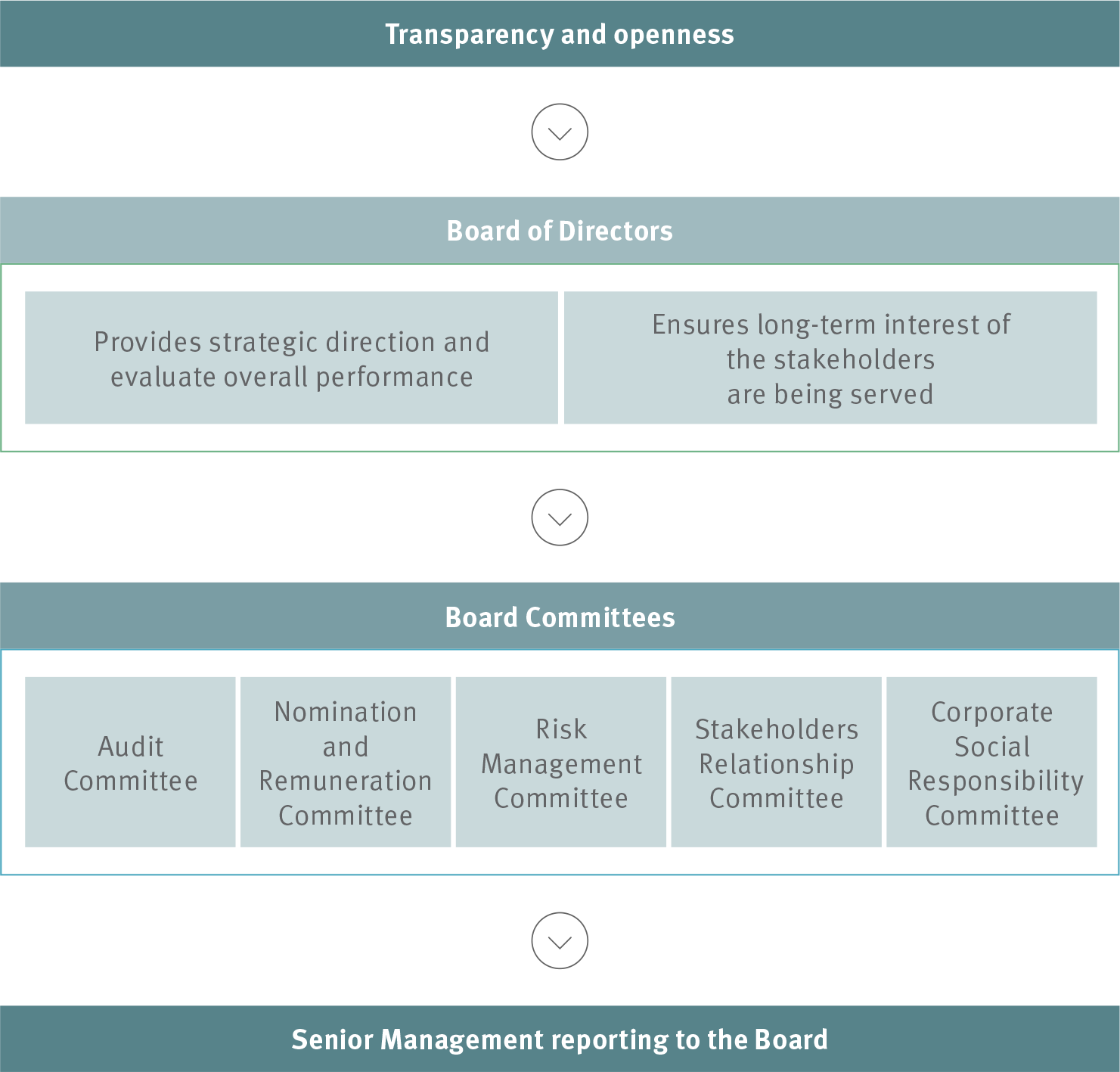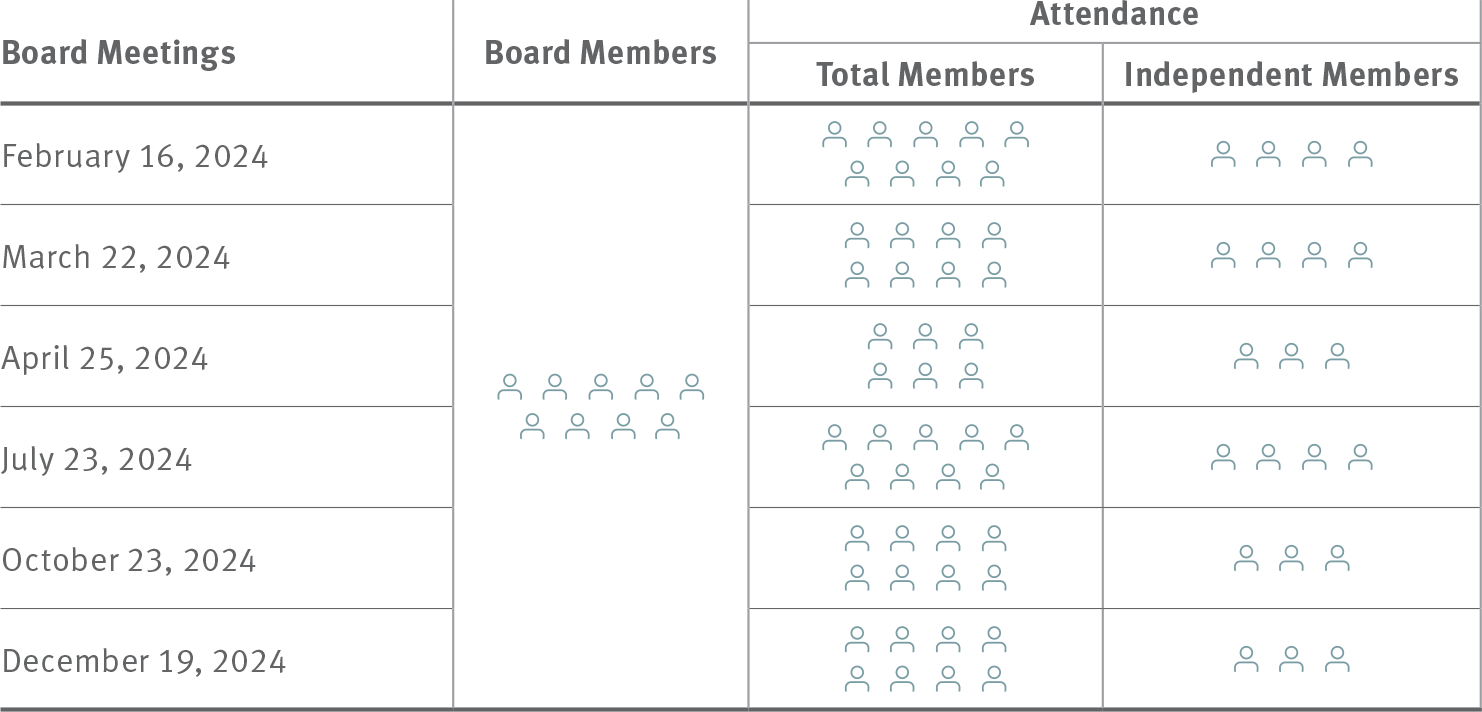We adhere to the highest standards of corporate governance to ensure ethical conduct, integrity, transparency, and accountability throughout the organization. This approach allows us to maintain oversight, identify risks, and enhance value for all stakeholders.

Independent Board Members
Chairperson
– Non-Executive Independent
Non-independent Board Members
Female Board
Members
Average median age
of Board Members

Rights and equitable
treatment of shareholders
Communication with shareholders
Related Party Transactions
Shareholder’s Handbook
Conflict of interest
The role of stakeholders in
corporate governance
Stakeholder engagement
Supplier management
Employee welfare
Investor engagement
Whistle-blower policy
Disclosures and
transparency
Ownership structure
Financial and non-financial disclosures
Company filings and quarterly disclosures
Risk management
Transparent and objective disclosures
Dividends and payout policies
Responsibilities of the Board
and Committees

Board as a trustee
Board and committee composition
Performance review
Succession planning